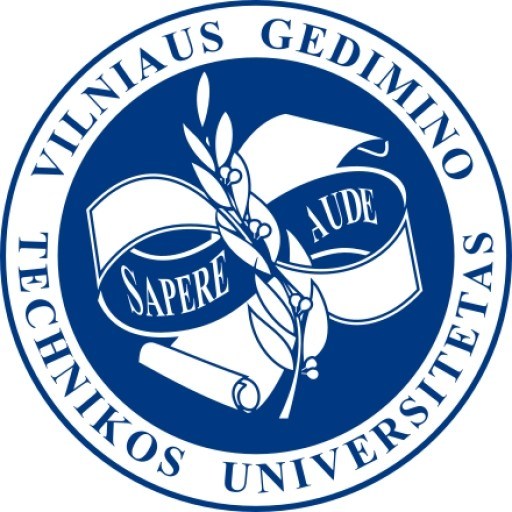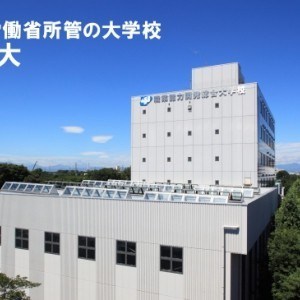Photos of university / #pennstate
The Bachelor of Science in Petroleum and Natural Gas Engineering at The Pennsylvania State University is a comprehensive and rigorous undergraduate program designed to prepare students for successful careers in the upstream oil and gas industry. This program offers a blend of technical coursework, practical training, and research opportunities that equip students with the essential skills and knowledge necessary to address the complex challenges of exploration, extraction, production, and management of petroleum and natural gas resources.
Students in this program engage in rigorous coursework covering fundamental engineering principles such as thermodynamics, fluid mechanics, geology, reservoir engineering, drilling engineering, production operations, and safety protocols. The curriculum also emphasizes the importance of environmental considerations, sustainable practices, and the latest technological advancements in the energy sector. Through a combination of classroom learning, laboratory experiments, and hands-on field experiences, students develop a strong foundation in the scientific and engineering concepts critical for operating safely and efficiently in the energy industry.
The program benefits from Penn State’s state-of-the-art facilities, industry partnerships, and experienced faculty who are leaders in petroleum engineering research and education. Students have opportunities for internships, cooperative education (co-op), and research projects with industry partners, enabling them to apply theoretical knowledge in real-world settings, gain valuable professional experience, and build networks within the energy sector.
Graduates of the program are well-positioned to pursue careers in oil and gas exploration, production, reservoir management, drilling operation, and energy consulting. They may also continue their education through graduate studies or obtain professional engineering licensure. The program emphasizes not only technical expertise but also leadership, ethical responsibility, and sustainable development, preparing students to contribute positively to the energy industry and society as a whole.
Overall, the Petroleum and Natural Gas Engineering program at Penn State aims to develop innovative, competent, and ethical engineers who can meet the evolving demands of the global energy landscape while advancing sustainable practices and technological innovation.
| Course Nbr | Course Title | Typically Offered |
|---|---|---|
|
397 |
Special Topics |
Spring Only |
|
405 |
Rock and Fluid Properties |
Fall Only |
|
406 |
Rock and Fluid Laboratory |
Fall & Spring |
|
410 |
Applied Reservoir Engineering |
Spring Only |
|
411 |
Introduction to Petroleum and Natural Gas Extraction |
Fall Only |
|
411 |
Introduction to Petroleum and Natural Gas Extraction |
Spring Only |
|
420 |
Applied Reservoir Analysis and Secondary Recovery |
Fall Only |
|
420H |
Applied Reservoir Analysis |
Fall Only |
|
425 |
Principles of Well Testing and Evaluation |
Spring Only |
|
430 |
Reservoir Modeling |
Fall Only |
|
440 |
Formation Evaluation |
|
|
450 |
Drilling Engineering |
Spring Only |
|
451 |
Drilling Laboratory |
Fall & Spring |
|
456 |
Hydraulic Fracturing Analysis |
All Semesters |
|
457 |
Pump Systems for Oil and Gas Production |
|
|
458 |
Assessment, Classification, and Reporting of Reserves and Resources |
|
|
459 |
Well Control Certification |
|
|
475 |
Petroleum Engineering Design |
Spring Only |
|
480 |
Production Process Engineering |
Spring Only |
|
482 |
Production Engineering Laboratory |
Fall & Spring |
|
489 |
Engineering Evaluation of Oil and Gas Properties |
Fall & Spring |
|
490 |
Introduction to Petroleum Engineering Design |
Spring Only |
|
491 |
Reservoir Engineering Design |
Fall Only |
|
492 |
Petroleum Engineering Capstone Design |
Spring Only |
|
492H |
Petroleum Engineering Capstone Design |
Spring Only |
- Secondary School Records
- Post-Secondary School Records
- TOEFL: A minimum TOEFL score of 80 on the Internet-based TOEFL or 550 on the paper exam (code #2660)
- IELTS: A minimum IELTS score of 6.5 on the academic test
- Penn State requires first-year international students to submit an official score from the SAT or ACT examination.Please note: The writing component of standardized tests (SAT or ACT) is not required. The writing component will not be used as part of our evaluation. If your test scores include the writing component, by all means, have those scores sent to Penn State. Additionally, we do not require SAT Subject Tests.
The Petroleum and Natural Gas Engineering undergraduate program at The Pennsylvania State University offers a comprehensive financial aid and scholarship package designed to support students throughout their academic journey. Undergraduate students enrolled in this program have access to a variety of funding opportunities, including merit-based scholarships, need-based grants, federal and state financial aid programs, and external scholarship organizations. The university’s Office of Financial Aid provides detailed guidance to prospective and current students to help them identify suitable funding sources and complete the necessary application procedures.
Merit-based scholarships are awarded based on academic achievement, leadership, and extracurricular involvement, and are available to both incoming freshmen and current students. Need-based grants are offered to students demonstrating financial need, as assessed through the Free Application for Federal Student Aid (FAFSA). The university participates in federal programs such as Pell Grants, federal work-study, and Stafford Loans, providing students with options to finance their education while gaining practical experience through on-campus employment opportunities. State grants and scholarships are also accessible to Pennsylvania residents, further reducing the financial burden.
Additionally, the university encourages students to seek external funding sources including industry-sponsored scholarships, private foundations, and professional organizations related to the petroleum and natural gas sector. Many companies and industry associations recognize the importance of developing skilled engineers in this field and offer targeted scholarships and internships that support students financially and professionally.
The cost of attendance for the Petroleum and Natural Gas Engineering program includes tuition, fees, housing, and personal expenses. Tuition rates vary depending on residency status, with in-state students benefiting from lower tuition compared to out-of-state students. The university provides an online cost calculator for prospective students to estimate their expenses precisely. Financial aid packages typically combine grants, scholarships, loans, and work-study funds to meet the student’s demonstrated need and academic costs.
The university also offers counseling services to help students understand their repayment obligations, manage financial planning, and explore employment prospects after graduation, which can significantly impact their ability to finance their education. Overall, The Pennsylvania State University commits substantial resources to ensure that qualified students can afford to pursue a degree in Petroleum and Natural Gas Engineering, thereby promoting equal access to high-quality engineering education in this critical industry.
The Pennsylvania State University offers a Bachelor of Science degree in Petroleum and Natural Gas Engineering through its College of Earth and Mineral Sciences. This program is designed to prepare students for careers in the exploration, extraction, and production of petroleum and natural gas resources. The curriculum combines fundamental engineering principles with specialized training in the geology, drilling, production, and management of hydrocarbons. Students gain a solid foundation in physics, chemistry, mathematics, and engineering sciences, alongside courses focused specifically on reservoir engineering, petrophysics, drilling engineering, and production operations.
The program emphasizes hands-on learning through laboratory work, field trips, and internships with industry partners, providing students with practical experience that complements their academic coursework. Students have opportunities to participate in research projects related to subsurface characterization, enhanced oil recovery, and sustainable energy extraction methods. The university’s state-of-the-art laboratories and oil and gas training facilities enable students to develop technical skills in well logging, drilling simulations, and reservoir analysis.
The program also offers specialization options in areas such as offshore engineering, unconventional resources, and environmental considerations in hydrocarbon extraction. Students are encouraged to engage with industry professionals and participate in student organizations like the Penn State Petroleum Society, which promotes industry networking and professional development.
Graduates of the program are well-positioned to pursue careers in oil and gas companies, consulting firms, government agencies, and research institutions. The program prepares students for certification exams such as those administered by the Society of Petroleum Engineers (SPE). The university’s strong industry connections facilitate internships and employment opportunities, ensuring students are competitive in the global energy sector. The Petroleum and Natural Gas Engineering program at Penn State is recognized for its rigorous curriculum, comprehensive training, and commitment to innovation and sustainability in the energy industry.









